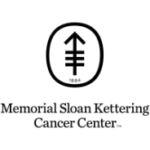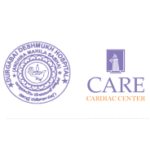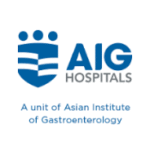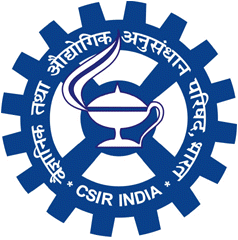Treatments Focus
Cancer Risk Assessment for Breast Cancer

Breast cancer is the cancer that starts in your breast cells. This occurs when the breast cells go out of control. The tumours of the breast can be noncancerous (benign) and cancerous (malignant).
There are different types of breast cancer. The kind of breast cancer depends on the which cells in the breast turn into cancer.
Different types of breast cancer include:
- Angiosarcoma
- Ductal carcinoma in situ (DCIS)
- Lobular carcinoma in situ (LCIS)
- Inflammatory breast cancer
- Invasive lobular carcinoma
- Male breast cancer
In India, breast cancer has the highest incidence rate among women.
Recent genome advancements have made it possible for prediction of breast cancers and understanding the risk percentage of breast cancer by analyzing individual’s gene make up and family history.
Breast Cancer Risk Factors
Some of the risk factors are as follows:- Age: Increase for breast cancer increases with age (mostly over the age 50)
- Genetic alterations
- Family history of breast or ovarian cancers
- Personal history of breast cancer or non-cancerous breast diseases
- Previous treatment using radiation therapy
- Exposure to drug diethylstilbestrol (DES)
- Reproductive history: Starting menstrual periods before age 12 or starting menopause after age 55 – expose women to hormones longer than they should
- Having dense breasts
- Physical inactivity
- Obesity
- Alcohol consumption
Common genes responsible for Breast Cancer
Some of the tumour associated genes are:- BRCA1 and BRCA2 genes are the most common cause of hereditary breast cancers.
Assessment of Breast Cancer Risk
Assessment of cancer risk for breast cancers for those with high risk factors as mentioned above. Some of the tests an individual can take to know the possibility of cancer are:- Personal history of cancer
-
Detailed family history to detect the following situations:
- If you have a close relative (grandmothers, mother, sister, aunts) on either parent’s side of the family
- A history of both breast and ovarian cancer on the same side of the family
- Women with a history of breast cancer accompanied by other cancers
- If there is a man with breast cancer in your family
-
Possible screening tests include:
- Mammography (most common screening test): Recommended for every woman between 50 to 74 years old
- Breast Magnetic Resonance Imaging (MRI)
- Other exams include: Clinical Breast Exam and Breast self-exam
Dizziness or lightheadedness, or unsteadiness
Nausea
Vomiting
Headache
FAQ's :
What are the benefits of genetic testing for breast cancer?
Genetic testing can help you understand your chances of getting breast cancer and take the early prevention measures or explore treatment options.
Is breast cancer hereditary?
Up to 10% of breast cancers may be hereditary. This means they are caused by a genetic alteration which is inherited from a parent.
Can a history of breast cancer on father’s side be hereditary?
A woman with a strong history of breast cancer on her father’s side can inherit it and has the same risk of having abnormal breast cancer gene as the woman with a strong family history on her mother’s side.
References:
- What Is Breast Cancer? American Cancer Society. https://www.cancer.org/cancer/breast-cancer/about/what-is-breast-cancer.html Accessed on 04-06-2022
- Breast Cancer. Mayo Clinic. https://www.mayoclinic.org/diseases-conditions/breast-cancer/symptoms-causes/syc-20352470 Accessed on 04-06-2022
- What is Breast Cancer? Centers for Disease Control and Prevention. https://www.cdc.gov/cancer/breast/basic_info/what-is-breast-cancer.htm Accessed on 04-06-2022
- Breast Cancer: Risk Factors and Prevention. Cancer. Net. https://www.cancer.net/cancer-types/breast-cancer/risk-factors-and-prevention Accessed on 04-06-2022
- BRCA1 and BRCA2 genetic mutations. Breastcancer.org. https://www.breastcancer.org/risk/risk-factors/genetics Accessed on 04-06-2022
- What is breast cancer screening? Centers for Disease Control and Prevention. https://www.cdc.gov/cancer/breast/basic_info/screening.htm Accessed on 04-06-2022
Related Articles
Book an Appointment to understand how GenepoweRx can help you in treating
Cancer Risk Assessment for Breast Cancer
Meet The Doctors
Dr Kalyan Uppaluri
Dr Hima Challa
Your genetics … Your Test ... Your Health Success
It’s always the word of mouth that’s the best advice. Here are some of our…

Play Video

Play Video
Dr Hima takes utmost care of her patients and try to analyze the patient’s issues, gives a good amount of time to each patient in her consultation. I found her consultantions very helpful to my in-laws and myself. Dr Kalyan & Dr Hima both take personalized care of each patient. I say for any personalized issue regarding health, you can rely on them. Thank u so much for the care and support
In recent times we have had consulted GenepoweRx Personalized Medicine Clinic for my grandmother as she is diabetic. She was assigned to Dr.Kalyan Uppaluri who is considered the best diabetes doctor in Hyderabad, he looked over the reports of my granny and instructed the diet to be followed and suggested a customized medicine regime to be followed. At present, her sugar level is in normal condition.
Dr.Hima is the best allergist in Hyderabad. My sister has food allergies since her childhood. So, she used to skip some high protein foods. Then we consulted Dr.Hima. Then she listened to her problem and followed up with some medications. My sister used to have those medications on time and now she is free from allergy. Dr.Hima's treatment, indeed, worked very well . She is highly professional, and the hospital was so tidy. And the treatment charges are very reasonable. I would recommend her to everyone for whoever suffering from allergies.
Previous
Next
Our Partners






Professional Partnerships
Government Association

CSIR - Centre for Cellular & Molecular Biology
The Centre for Cellular and Molecular Biology (CCMB) under the Council of Scientific and Industrial Research (CSIR) is a premier research organization in frontier areas of modern biology, and promotes centralized national facilities for new and modern techniques in the interdisciplinary areas of biology and bioinformatics.
